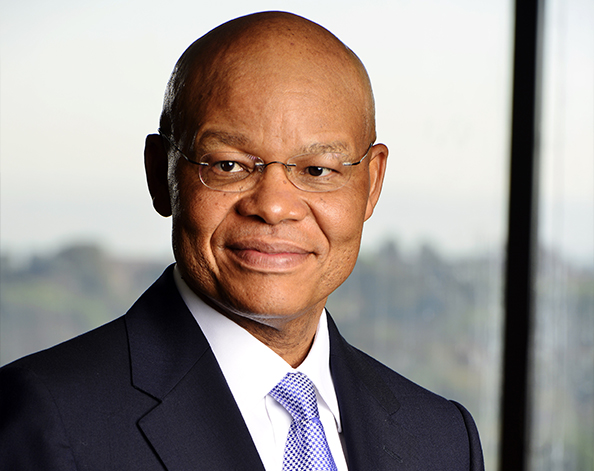Receive Focus insights straight to your inbox
Africa holds immense economic potential, with many experts predicting that the continent will become the new and final frontier for global growth as western economies continue to slow.
According to the Observer Research Foundation, most African countries have experienced high rates of economic growth in the last decade, and the continent plays host to five of the world’s fastest-growing countries.
Leveraging the demographic dividend
Africa also has about 600 million hectares of arable land and the world’s youngest and fastest-growing population. Together, these factors provide an ideal base for sustained, long-term growth.
Speaking recently during a panel discussion at the 20th Africa Business Summit, hosted by the London Business School, former CEO of Goldman Sachs SSA and Yale Fellow, Colin Coleman explained that Africans will account for four out of every 10 humans on the planet by 2100 as the continent's population swells from around 1.3 billion to over 4 billion.
“This demographic dividend is a fundamental factor that will drive both the largest opportunity for business in our lifetime, along with a potential threat of a humanitarian disaster if we don't get Africa's economy to grow with the population.”

[Africa's] demographic dividend is a fundamental factor that will drive both the largest opportunity for business in our lifetime, along with a potential threat of a humanitarian disaster if we don't get Africa's economy to grow with the population.
Unlocking Africa's potential through startups
Panellists agreed that to unlock the necessary growth and realise its full potential, Africa must nurture entrepreneurship and support its thriving startup ecosystem. Already a hub for telecoms and fintech innovation, Africa has the potential to become a future tech superpower due to the continent’s rapidly expanding tech startup ecosystem.
“If Africa hopes to realise its potential, it is critical to drive higher levels of business origination from startups on the continent, especially in terms of technology,” affirmed Fani Titi, Investec’s CEO, who spoke alongside Coleman on the panel.
“Helping more people start businesses in Africa will positively impact the lives of more Africans through greater economic inclusion and wider service provision.”
If Africa can effectively grow at around 6% for the next 40 years, this growth will create roughly $23 trillion in opportunities, which computes to about $600 billion a year, elaborates Coleman.
“This growth is like what happened in China over the last 40 years, which has been the biggest fundamental change in the world that we've witnessed in our lifetime, alongside advances in technology.”

If Africa hopes to realise its potential, it is critical to drive higher levels of business origination from startups on the continent, especially in terms of technology.
Record funding for African startups
The most recent annual African Tech Startups Funding Report from Disrupt Africa found that 564 startups raised over US$2 billion in 2021. And the sector seems set to surpass that mark this year, with more than US$1 billion secured in just the first two months of 2022.
A major reason why startups in Africa have continued to raise money amid the global slowdown relates to the sector's ability to solve for primary needs, like access to banking and energy or communication.
However, funding for African startups still lags behind the rest of the world, and the sector will require more investment to support its strong innovation pipeline to continue harnessing the power of tech for good and creating new solutions that have global applications.
African fintech unicorns
There are seven African tech startups that have reached unicorn status – that is, privately owned startups with a valuation that exceeds $1 billion. Five of them are in the fintech space, the other two are Jumia (ecommerce) and Andela (an HR solution for software engineers).
$3 billion
$2 billion
$1.7 billion
$1 billion
$1.5 billion
Investec Fintech Partnerships

Investec welcomes the opportunity of working with fintech firms, for example through our open banking platforms, our partnership model and investment vehicles.
Lower valuations a challenge
Startups on the continent typically struggle to secure adequate funding due to various factors that impact valuations.
“The valuation issue typically relates to the higher discount rates attached to the political risks and other region-specific risks,” explains Coleman.
Another panellist, Ido Sum, Partner at Africa-focused tech VC TLcom Capital, adds that African startups typically have more complex business models than their peers in the US.
“This makes it difficult to accurately evaluate and compare investment opportunities. We also tend to forget that this is the first cycle of African startups and we are still at a very early stage in this cycle.”
The challenge most startups face in the pre-seed stage is a lack of financial performance for investors to assess.
Fortunately, African startups have numerous early-stage funding avenues available to them, explains Coleman, including funding from private equity firms, agency capital, venture capital firms, and small micro-enterprise funds.
“There is good appetite to mobilise capital for good ideas. And a lot of private family capital and private businesses in Africa will support the development of good ideas.”
For example, Titi explains that Investec banks numerous ultra-high net worth individuals with up to $200 million in assets.
“As their trusted banking partner, we introduce these people to special alternative investment opportunities beyond the stock market that could be game-changing and transformational to their portfolios.”
African tech startups make WEF top 100
Six African startups appeared in the World Economic Forum’s (WEF) list of 100 innovative tech startups as part of its 2022 Technology Pioneers initiative.
Pula Advisors (Kenya)
A fintech and technology startup focused on providing financial services for the agricultural sector.
Access Afya (Kenya)
A healthtech startup that provides quality, affordable healthcare for the global mass market by leveraging patient data to facilitate efficient diagnostic, operational and follow-up care pathways.
Ampersand (Rwanda)
A renewable energy startup that provides a battery-swap energy network for electric motorcycles.
Ejara (Cameroon)
A fintech startup that specialises in democratising investments, including equities, cryptos and commodities, among others, throughout Africa.
Okra (Nigeria)
An API-based fintech startup specialising in financial services digitalisation to streamline access to customer financial information and data.
Sendy (Kenya)
A fintech startup that builds e-commerce fulfilment infrastructure for consumer brands.
Banks to play an increasingly important role
Larger financial institutions like banks also play an important role in supporting later-stage African startups.
“The established financial services sector typically does not finance early-stage startups because banks require a track record of cash flow, data around customer numbers and, in most cases, require security from owners to fund the business,” explains Titi.
However, innovative lenders like Investec support the ongoing development of startups through other initiatives.
“One of the more fundamental areas of work is how we support venture capital funds. For example, Investec has put capital behind numerous VC funds via our Emerging Companies Fund in South Africa, which invests predominantly in fintech startups,” he elaborates.
This indirect investment approach is synergistic for Investec as it builds an innovation pipeline for the business that can offer solutions to the industry challenges and problems the company faces, such as rising competition from digital-native disruptors, or broadening and accelerating penetration into growth markets.

Building the startup ecosystem
“The second area that is really important for us as a financial institution beyond merely providing capital is building a robust ecosystem as startups also require talent, ideas and access to support networks.”
As an example, Investec in the UK has advisors that assist startups through its Beyond Business CSI initiative for social entrepreneurs, particularly around banking-related operational tasks and offloading some of the more administratively onerous tasks and functions.
“These support and advisory services allow entrepreneurs and their business to concentrate on the innovation part of what they do.”
As a startup co-founder, panellist Folake Owodunni, CEO at Emergency Response Africa (ERA), agrees that entrepreneurs need more than just money.
“While access to funding provides the capital you need to execute your strategy by hiring great talent to build your products and performing other tasks that a company needs to succeed, access to partners, potential clients and regulators result in a much higher chance of success. It really helps when you partner with an investor that can deliver these two things together.”
How Investec is supporting startups

Startup School
Founded by some of South Africa’s most successful entrepreneurs, supported by Investec, the Startup School aims to facilitate, support and encourage entrepreneurship in South Africa.

The Academy of Accelerated Technology Education
A graduate programme for technologists that produces high-quality software engineers, data analysts and cybersecurity expertise from which startups can source talent to effectively scale. Investec is the founding partner of AATE.

Investec Beyond Business
Investec Beyond Business is a social enterprise incubation programme in the UK. It aims to help promising entrepreneurs who are committed to creating sustainable, profit-making businesses which also generate social outcomes.
In addition, Investec has also launched Startup School, which exposes young entrepreneurs to basic ideas about what to consider when starting and growing their own businesses. And Investec proudly backs the Academy of Accelerated Technology Education (AATE), a graduate programme for technologists that produces high-quality software engineers, data analysts and cybersecurity expertise from which startups can source talent to effectively scale.
“We also work very closely with entrepreneurs when they get to a particular stage. And we work with private equity and, to a lesser extent, VC funds to provide the liquidity needed at both a personal level and a corporate level to help startups move to the next stage. This element in the value chain is where banks can really play a transformative role,” concludes Titi.


